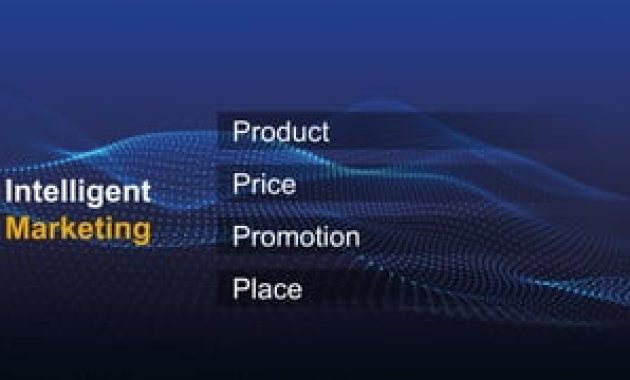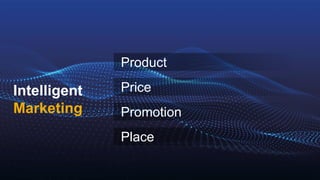
How to Power Smarter Marketing with Business Intelligence Software
In today’s hyper-competitive business landscape, marketers are constantly seeking ways to gain an edge. Data is the new currency, and those who can effectively harness its power are poised to thrive. This is where Business Intelligence (BI) software comes into play, offering a transformative approach to marketing. By leveraging BI, marketing teams can move beyond gut feelings and intuition. They can make data-driven decisions that deliver measurable results. This article explores how to power smarter marketing with business intelligence software, providing insights and strategies for maximizing its potential.
Understanding Business Intelligence in Marketing
Business Intelligence software is more than just a reporting tool. It is a comprehensive platform designed to collect, analyze, and visualize data from various sources. These sources can include website analytics, social media engagement, customer relationship management (CRM) systems, and sales data. The goal is to transform raw data into actionable insights. These insights help marketers understand customer behavior, campaign performance, and market trends.
BI software empowers marketers to:
- Track Key Performance Indicators (KPIs): Monitor critical metrics like website traffic, conversion rates, and customer acquisition cost.
- Identify Trends and Patterns: Uncover hidden insights within the data to anticipate market shifts and customer preferences.
- Optimize Campaign Performance: Analyze campaign results to identify what’s working and what’s not. Then, make data-driven adjustments for better ROI.
- Personalize Customer Experiences: Gain a deeper understanding of customer segments and tailor marketing messages accordingly.
- Improve Decision-Making: Make informed decisions based on data rather than assumptions. This minimizes risks and maximizes opportunities.
Key Features of Business Intelligence Software for Marketing
Effective BI software for marketing offers a range of features designed to streamline data analysis and reporting. These features are essential for unlocking the full potential of your marketing data.
Data Collection and Integration
The ability to collect data from diverse sources is crucial. The software should integrate seamlessly with existing marketing tools and platforms. This ensures a unified view of all relevant data.
Data Analysis and Reporting
Sophisticated analytical capabilities are vital. These capabilities allow marketers to:
- Perform in-depth analysis.
- Create custom reports.
- Generate visually appealing dashboards.
These reports and dashboards make it easier to understand complex data.
Data Visualization
Visualizations transform raw data into easily understandable formats. Charts, graphs, and interactive dashboards allow for quick insights. They also help in effectively communicating findings to stakeholders.
Predictive Analytics
Some BI tools include predictive analytics features. These features use historical data to forecast future trends and outcomes. This allows marketers to proactively adjust strategies.
Automation and Alerts
Automated reporting and alert systems can save time and ensure timely updates. Set up alerts to notify you of significant changes in key metrics.
Implementing Business Intelligence for Marketing Success
Implementing BI software is a process that requires careful planning and execution. Here are the steps to take for a successful implementation:
Define Your Objectives
Before you start, clearly define your marketing goals and objectives. What do you want to achieve with BI? This will guide your data analysis and reporting efforts.
Choose the Right BI Software
Select a BI software solution that aligns with your specific needs and budget. Consider factors like ease of use, integration capabilities, and analytical features.
Integrate Your Data Sources
Connect your BI software to all relevant data sources. This includes your website analytics, CRM, social media platforms, and any other data repositories.
Develop Key Performance Indicators (KPIs)
Identify the KPIs that are most important to your marketing success. Track these metrics regularly to monitor progress and identify areas for improvement.
Create Dashboards and Reports
Design dashboards and reports that provide actionable insights. These should be easy to understand and tailored to the needs of your marketing team.
Train Your Team
Ensure that your marketing team is trained on how to use the BI software effectively. Provide ongoing support and training to maximize its value.
Analyze and Iterate
Continuously analyze your data and make adjustments to your marketing strategies. BI is an ongoing process of learning and refinement.
Real-World Examples: How BI Powers Smarter Marketing
Let’s look at some real-world examples of how BI software is transforming marketing efforts:
Personalized Customer Journeys
Retailers use BI to analyze customer data. They personalize the customer experience. They recommend products and tailor marketing messages based on individual preferences.
Optimizing Campaigns
A SaaS company uses BI to monitor its marketing campaigns. They identify the most effective channels. They allocate resources accordingly. This leads to a higher ROI.
Improving Lead Generation
A B2B company uses BI to analyze lead sources. They identify the channels that generate the highest quality leads. They focus their efforts on those channels.
Predicting Market Trends
A consumer goods company uses BI to analyze market trends. They anticipate shifts in consumer demand. They adjust their product offerings accordingly.
The Benefits of Using Business Intelligence Software
Implementing BI software offers several benefits for marketing teams:
- Improved Decision-Making: Data-driven insights lead to more informed decisions.
- Increased Efficiency: Automation streamlines reporting and analysis.
- Enhanced ROI: Optimized campaigns and resource allocation boost ROI.
- Better Customer Experiences: Personalization improves customer satisfaction.
- Competitive Advantage: Data-driven strategies provide a competitive edge.
Challenges and Considerations
While BI offers significant advantages, there are also challenges:
- Data Quality: The accuracy of your data is critical. Ensure data is clean and reliable.
- Complexity: BI software can be complex. It requires training and expertise.
- Integration: Integrating data from multiple sources can be challenging.
- Cost: The cost of BI software can be significant. Consider the budget.
- Data Privacy: Ensure compliance with data privacy regulations.
Future Trends in Business Intelligence for Marketing
The future of BI in marketing is promising. Here are some emerging trends:
- Artificial Intelligence (AI): AI-powered BI tools will automate analysis and provide more advanced insights.
- Machine Learning (ML): ML will enable predictive analytics and personalized recommendations.
- Self-Service BI: More user-friendly tools will empower marketers to perform their own analysis.
- Cloud-Based BI: Cloud-based solutions will become more prevalent. They offer greater flexibility and scalability.
- Real-Time Analytics: Real-time data analysis will provide immediate insights. This allows for quicker decision-making.
Conclusion: Embracing Data for Marketing Success
Business Intelligence software is no longer a luxury. It is a necessity for marketers who want to thrive. By embracing data-driven strategies, marketing teams can make smarter decisions. They can optimize campaigns and create better customer experiences. As the marketing landscape continues to evolve, the ability to harness the power of BI will be a critical differentiator. This will help businesses gain a competitive edge. This article has shown how to power smarter marketing with business intelligence software. Now, you are ready to take action.
The key to successful marketing is understanding your audience. It is also important to track performance. With BI, you can unlock actionable insights. You can optimize your marketing strategies. Make sure you are always improving. The goal is to increase your ROI.
Leveraging business intelligence software is a must for any marketer. Data is the key to success. Start implementing BI today. Your marketing efforts will be more efficient and effective. Watch your business flourish. That is how to power smarter marketing with business intelligence software.
[See also: Related Article Titles]

